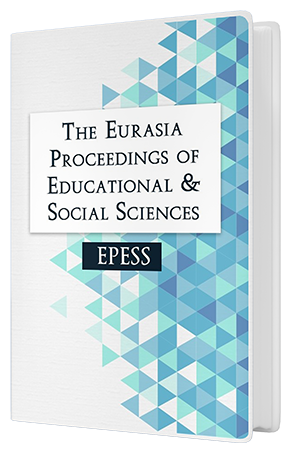A MATLAB Supported learning and Students' Conceptual Understanding of Domain and Range of a Function of Two Variables: Wolkite University, Ethiopia
Keywords:
MATLAB supported learning, Collaborative method, Conceptual understanding, Domain and range, Functions of two variablesAbstract
A case study design was conducted at Wolkite University to investigate MATLAB supported learning and students' conceptual understanding in learning Applied Mathematics II using four different comparative instructional approaches: MATLAB supported traditional lecture method, MATLAB supported collaborative method, only collaborative method and only traditional lecture method. Four intact classes Mechanical Engineering groups 1 and 2, Garment Engineering and Textile Engineering students were selected by simple random sampling out of eight departments. The first three departments were considered as treatment groups and the fourth one “Textile Engineering” was assigned as a comparison group, randomly. Qualitative data were collected through reasoning part of the multiple choice items of pre-test and interview items of the post-test were analyzed using APOS analysis based on proposed genetic decompositions. The results of the data show that the majority of the students' conceptual understanding lies in action conception. Students' conceptual understanding on domain and range is a straight forward as that of a function of a single variable which reveals that students haven’t developed new schemata for a function of two variables, as different from a function of a single variable. Majority of the respondents were poor on extending a previous concepts to the new concept and had difficulty to represent domain and range using graph. The results also show that there is no difference between students learning through MATLAB supported in combination with collaborative approach and other instructional approaches like MATLAB supported learning in combination with traditional lecture method, traditional lecture method and collaborative method on conceptual understanding. This might be due to lack of students' experience on technology supported learning in such advanced courses. Thus, this study recommends further study on software supported learning in combination with collaborative method for betterment of conceptual understanding.Downloads
Published
Issue
Section
License
Copyright (c) 2020 The Eurasia Proceedings of Educational and Social Sciences

This work is licensed under a Creative Commons Attribution-NonCommercial-ShareAlike 4.0 International License.
The articles may be used for research, teaching, and private study purposes. Any substantial or systematic reproduction, redistribution, reselling, loan, sub-licensing, systematic supply, or distribution in any form to anyone is expressly forbidden. Authors alone are responsible for the contents of their articles. The journal owns the copyright of the articles. The publisher shall not be liable for any loss, actions, claims, proceedings, demand, or costs or damages whatsoever or howsoever caused arising directly or indirectly in connection with or arising out of the use of the research material. All authors are requested to disclose any actual or potential conflict of interest including any financial, personal or other relationships with other people or organizations regarding the submitted work.




